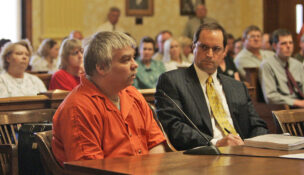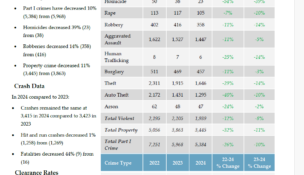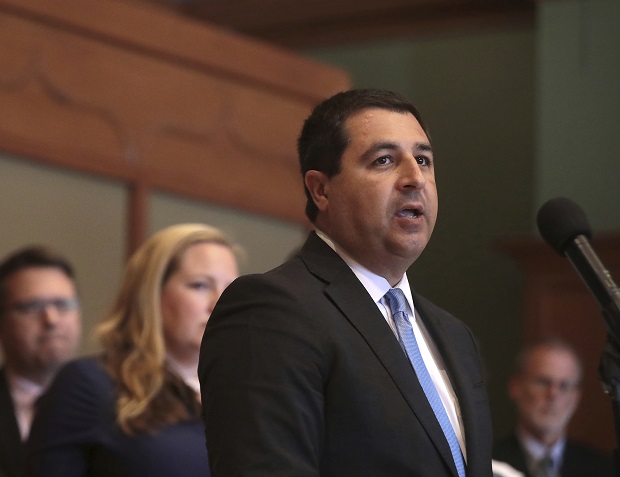Doctors, lawyers concerned about fund transfer
By: dmc-admin//November 5, 2007//
 Is the third time the charm for a provision in the Wisconsin state budget to transfer approximately $200 million from the Injured Patients and Families Compensation Fund to a newly created health care quality fund?
Is the third time the charm for a provision in the Wisconsin state budget to transfer approximately $200 million from the Injured Patients and Families Compensation Fund to a newly created health care quality fund?
Not if members of the state’s legal and medical communities have any say about it.
On Oct. 29, the Wisconsin Medical Society (WMS), the largest association of medical doctors in the state with more than 11,000 members, filed a lawsuit against the state in Dane County Circuit Court, alleging that the transfer is illegal and potentially unconstitutional.
Established in 1975, the fund was created to help offset the rising costs of health care by absorbing part of financial liability incurred by health care providers as a result of medical malpractice claims, and to satisfy legitimate claims. The complaint argues that those funds are not to be used to finance other state initiatives.
“The bottom line is this isn’t the government’s money to spend, and we’re demanding that they return it,” said Mark Grapentine, senior vice president of Government Relations for the WMS, who noted that Gov. Jim Doyle’s two previous budget proposals had included provisions to transfer funds away from the patients compensation fund.
In 2003, Doyle sought a $200 million transfer and $180 million in 2005. The prior inclusions died in the Joint Finance Committee, but his $175-million request written into this year’s budget survived and was ultimately increased by the Legislature prior to adoption on Oct. 26.
Matt Canter, a spokesman from Doyle’s office, said the transferred funds would go toward a newly created Health Care Quality Fund designed to cover costs of Medicaid, prescription drug care for seniors and health insurance for families and children through the Badger Care Plus program.
“This is a fund created by the Legislature and it can therefore make changes to the fund,” said Canter. “The funds transferred from the PCF are an important revenue source for this budget and help pay for the state’s health care costs.”
“Vast Surplus”
Canter also cited a “vast surplus” in the fund’s account as an additional reason the transfer was requested.
Throughout the last seven years, the patients compensation fund has seen its surplus grow from nearly $5 million in 2001-02 to almost $95 million in 2006-07 as reported by the Wisconsin Office of the Commissioner of Insurance.
But according to Grapentine, the figures are deceiving when liabilities are taken into account.
“It’s somewhat disingenuous to simply say there is a surplus, because it’s not just cash sitting in a drawer,” said Grapentine, who pointed to a 2007 report issued by the Legislative Fiscal Bureau which notes that the fund increased its estimated undiscounted loss liabilities by $173 million after a 2005 Wisconsin Supreme Court decision eliminated the $350,000 cap on non-economic damages for medical malpractice claims.
As of April 6, 2006, Wisconsin Act 183 established a new $750,000 cap on non-economic damages for medical malpractice claims. Grapentine said removal of the old cap and the untested nature of the new cap only adds to the potential liability, rather than subtract from it.
While the Wisconsin Academy of Trial Lawyers (WATL) has formally opposed the transfer, President Robert L. Jaskulski, did not expect it would have an immediate practical impact on the financial health of the fund.
“If you look at the statistics, it’s extremely healthy and arguably over-funded,” said Jaskulski. “I don’t believe transfer will have a practical impact on affordable malpractice insurance or the availability of funds to satisfy claims, but that doesn’t make it the right thing for the state Legislature to have done.”
Jaskulski added that it was WATL’s view that the money is placed in an “irrevocable trust” for patients who suffer injuries as a result of medical errors and should not be used to fix the state’s budget problems.
Rather than raid the fund, he suggested the Legislature look to eliminate the caps on non-economic compensation.
“It seems inconceivable that only a year ago a new cap was put on non-economic losses based upon an alleged threat to the medical liability system,” said Jaskulski. “And now, although no circumstances have changed at all, they are talking about removing $200 million from that fund.”
Future Transfers?
Though the $200 million shift was proposed as a one-time transfer, Grapentine said that people in the medical and legal community would be naïve to not expect another provision in two years.
“Nobody thinks this to be a one-time taking,” said Grapentine. ‘It’s going to be multiple times to the cookie jar until there are only crumbs to sop up what’s left.”
Based on the fiscal bureau’s report which accounted for a $175-million transfer, the fund would operate at a year-end deficit of more than $233 million in 2007-08 and more than $295 million in 2008-09.
Canter did not rule out a proposal to transfer additional funds from the patients compensation fund in the next biennium.
“In two years, who knows,” said Canter. “We will wait and see. Right now, the courts are going to have to decide it.”
Grapentine expected a resolution could take “months or even years,” but stated that the WMS is in it for the long-haul.
“We can’t predict judicial timelines, but we are dedicated to protecting the fund,” said Grapentine.
Legal News
- Steven Avery prosecutor Ken Kratz admits ‘mistakes were made’
- Colombian national extradited to Milwaukee faces International narcotics-trafficking conspiracy charge
- MPD: Milwaukee homicides down nearly 40 percent compared to last year
- EVERS: Republican lawmakers No-Show at special meeting to release statewide PFAS funding, stabilize healthcare access
- Wisconsin ICAC Task Force conference on Missing and Exploited Children highlights increase in sextortion cases
- More than 300 Wisconsin officers back in law enforcement after being fired or forced out
- Former Trump staffer who said to ‘fan the flame’ after 2020 loss hired to lead Wisconsin GOP
- Gov. Evers appoints David Casey to Serve as DOR Secretary
- Former Marine sentenced for Molotov Cocktail attack against Planned Parenthood Clinic
- ABA names 34th Annual Margaret Brent Women Lawyers of Achievement Awards honorees
- FBI launches criminal investigation into Key Bridge collapse
- Man charged in slaying after woman’s leg found at Milwaukee-area park
WLJ People
- Power 30 Personal Injury Attorneys – Russell Nicolet
- Power 30 Personal Injury Attorneys – Benjamin Nicolet
- Power 30 Personal Injury Attorneys – Dustin T. Woehl
- Power 30 Personal Injury Attorneys – Katherine Metzger
- Power 30 Personal Injury Attorneys – Joseph Ryan
- Power 30 Personal Injury Attorneys – James M. Ryan
- Power 30 Personal Injury Attorneys – Dana Wachs
- Power 30 Personal Injury Attorneys – Mark L. Thomsen
- Power 30 Personal Injury Attorneys – Matthew Lein
- Power 30 Personal Injury Attorneys – Jeffrey A. Pitman
- Power 30 Personal Injury Attorneys – William Pemberton
- Power 30 Personal Injury Attorneys – Howard S. Sicula











